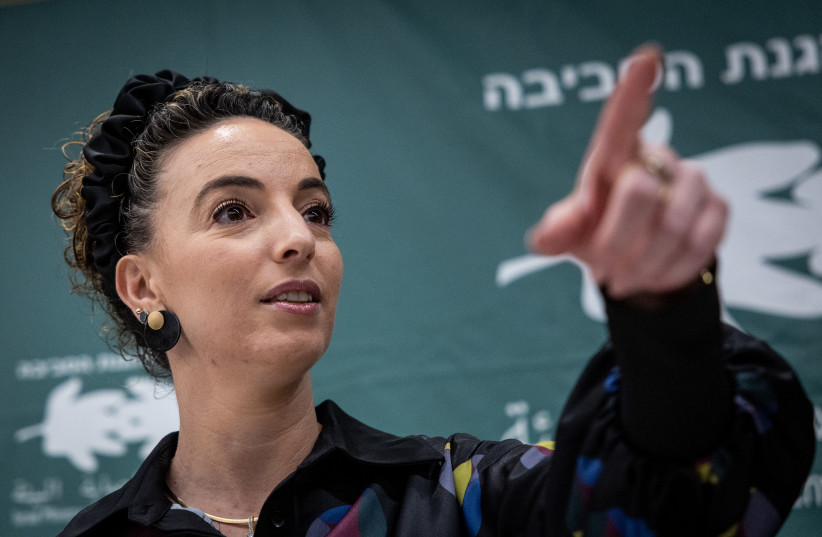The cabinet approved the formation of a ministerial committee on climate and the environment on Sunday.
"The climate crisis is a significant and core issue for the government," said Environmental Protection Minster Idit Silman. "Establishing the committee is another step toward a climate law for the State of Israel."
The committee will be responsible for coordinating between various government ministries related to the environment and preventing environmental damage, including dealing with dangerous materials and preparations for climate change.
The committee will also oversee the implementation of international obligations, such as treaties signed with the United Nations. It will also prepare the country to participate in COP28, which will be held in Dubai between November 20 to December 12, 2023.
Silman added that the recent release of the UN's IPPC report "reflected the direction in which the world is moving and obliges Israel to take policy measures as well."

The committee will comprise the Energy, Finance, Transportation, Agriculture, Economy, Interior, Housing, Negev and Galilee and Health ministers. National Security Adviser Tzachi Hanegbi will also be invited to attend meetings. The director-general of the Environmental Protection Ministry, Guy Samet, will be in charge of monitoring the implementation of the committee's decisions.
Israel's green-friendly initiatives
The committee's formation comes just days after the PMO announced it had placed the promotion of alternative proteins as a "national goal, on the understanding that it is a solution for food security and that the supply and production of alternative proteins will strengthen the Israeli economy."
"Israel will be a major power in alternative protein,"
Benjamin Netanyahu
"Israel will be a major power in alternative protein," Prime Minister Benjamin Netanyahu said last week.
The alternative protein plan is being developed in collaboration with Good Food Institute (GFI) Israel and the Israel Innovation Authority and will be coordinated by the PMO.
"The past year brought immense challenges, from failures in the global food supply to macroeconomic declines and geopolitical tensions," said GFI Israel's CEO Nir Goldstein. "Yet the threat to our climate persists, and it is clear - we can't reach net zero emissions and create resilient food systems without shifting away from industrial animal farming. Alternative proteins are the only scalable solution, and the Israeli ecosystem is paving the way."
PMO Director-General Yossi Shelley and Prime Minister's Animal Rights Adviser Tal Gilboa toured two leading Israeli food-tech companies in alternative proteins on Thursday: Remilk, which produces milk from yeast and is engaged in research and development, and Tnuva, which makes most alternative protein products for the Israeli market.
After the tour, they met with executives of start-up companies, academics and investors in the field.
"The Prime Minister's Office is committed to solidifying the Israeli leadership in alternative protein research and manufacturing for the climate, food security and the wellbeing of all living creatures."
Tal Gilboa
"The Prime Minister's Office is committed to solidifying the Israeli leadership in alternative protein research and manufacturing for the climate, food security and the wellbeing of all living creatures," Gilboa said.
Israel signed and ratified the United Nations Framework Convention on Climate Change in 1996. The framework is an international treaty adopted by the UN in 1992 at the Rio Earth Summit that aims to limit the impacts of climate change.
In addition, Israel ratified the Paris Agreement to the United Nations Framework Convention on Climate Change in 2016, which obligated Israel to hit its first greenhouse gas emissions reduction goals by 2030.
The Environment and Climate Change portal is produced in cooperation with the Goldman Sonnenfeldt School of Sustainability and Climate Change at Ben-Gurion University of the Negev. The Jerusalem Post maintains all editorial decisions related to the content.
